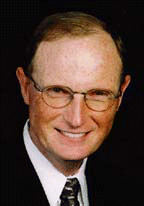Facial plastic surgeon John Rhee, MD, MPH, sees many patients with nonmelanoma skin cancer (NMSC). Struck by his patients’ varied responses to the cancer and the defects it caused, he noticed that some people minimized it, whereas others thought it was the worst experience of their lives.
Explore This Issue
May 2007Wondering why, in 2001 he decided to search the literature. However, there was very little written about this most common cancer of humankind and how people feel about it, he said.
His colleague, Marcy Neuburg, MD, succinctly pointed out that focusing on quality of life is important to patients because it reminds us that it isn’t necessarily how long you live, but how well you live.
Assuming there must be a validated tool to measure quality of life (QOL) for patients with NMSC, Dr. Rhee looked at existing quality measures from disease-specific to more generic sense of health general questionnaires, and found nothing specific to NMSC.
So, I used a skin index general questionnaire, as well as a generic cancer questionnaire. But, my patients said the questions didn’t relate to them. They told me there was little bearing on how they felt about their cancer and treatment results, he noted.
Thus began a five-year quest to develop a NMSC disease-specific quality of life predictor and measurement tool. Over the years, Dr. Rhee and his team at the Medical College of Wisconsin in Milwaukee tested existing tools, developed their own NMSC-specific questionnaire, and reported its usage in several papers, including Dermatologic Surgery, April 2004; Laryngoscope, July 2005; Dermatologic Surgery, July 2006; Archives of Facial Plastic Surgery, September/October 2006; and most recently, Laryngoscope, March 2007.
I applaud Dr. Rhee for working on this, said Shan R. Baker, MD, President of the American Board of Facial Plastic and Reconstructive Surgery and a professor at the University of Michigan Health System in Ann Arbor. There is more and more emphasis on outcomes research. If you can develop a reliable instrument to measure quality of life, then you can use that to assess outcomes. Right now, we don’t have a good way to assess and compare outcomes in treating nonmelanoma skin cancer.
The importance of a valid quality of life measurement was also noted by Peter Hilger, MD, President of the American Academy of Facial Plastic and Reconstructive Surgery and a facial plastic surgeon in Minneapolis.
It’s the trend of the future because the government has instituted pay-for-performance standards and we’re going to have to demonstrate quality outcomes in order to get reimbursed for what we’re doing, he said. We know there’s a big interplay between how you feel about yourself and how you function in the world.

Leave a Reply